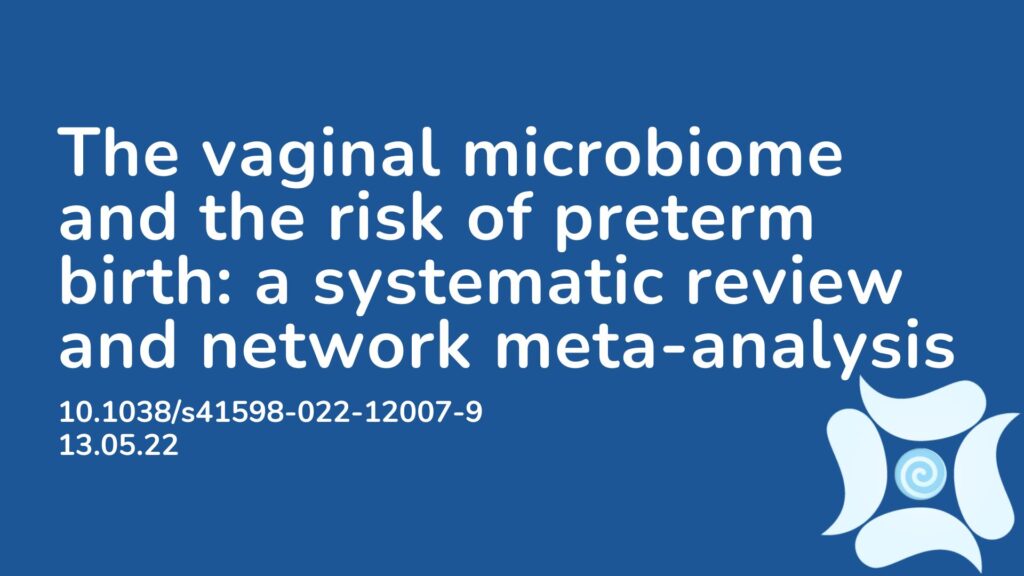Summary: There are many known risk factors of preterm birth such as premature rupture of membranes, infections and microbial displacement in the amniotic cavity. Research has elucidated that different Lactobacillus species may offer different risks for various birth related adverse events – suggesting the vaginal microbiome may play a protective role for birth outcomes.
Since vaginal dysbiosis and its related conditions such as bacterial vaginosis affects millions of women globally, it is critically important to understand the role of the vaginal microbiome in birth outcomes such as preterm birth.
The aim of this systematic review and meta-analysis was to investigate the relationship between the vaginal microbiome and the risk of preterm birth. 17 studies published between 2014 and 2021 were included. For the purpose of this meta-analysis, the vaginal microbiome is defined as community state types, i.e dominance of specific lactobacilli spp, or low-lactobacilli.
The results showed participants presenting with a vaginal microbiome of low-lactobacilli were at increased risk of having a preterm birth compared to lactobacillus dominant women. This means the results of this meta-analysis supports the microbiome being a predictor of preterm birth. The results also showed low abundance of lactobacilli is associated with the highest risk of preterm birth, and L. crispatus dominance the lowest.
This systematic review and meta-analysis is the first of its kind, as only one meta-analysis has been done previously on the topic, with only six studies included, only one of which overlapped.
To conclude, the diversity of specific bacteria in the vaginal microbiome appears to play a role in the risk of preterm birth, displayed in women with low abundance of lactobacilli being at greater risk of having a preterm birth compared to women with a L. crispatus dominant microbiome. Nutritionally and naturopathically this is an exciting area to explore, as the microbiome is often targeted as a first line of treatment for many preventable risks and health outcomes in these modalities. Herbal medicine, nutrition and lifestyle changes offer many evidence based approaches to supporting the health of the microbiome. More research on how to change the microbial environment of the vagina is needed.
Abstract: Preterm birth is a major cause of neonatal morbidity and mortality worldwide. Increasing evidence links the vaginal microbiome to the risk of spontaneous preterm labour that leads to preterm birth. The aim of this systematic review and network meta-analysis was to investigate the association between the vaginal microbiome, defined as community state types (CSTs, i.e. dominance of specific lactobacilli spp, or not (low-lactobacilli)), and the risk of preterm birth. Systematic review using PubMed, Web of Science, Embase and Cochrane library was performed. Longitudinal studies using culture-independent methods categorizing the vaginal microbiome in at least three different CSTs to assess the risk of preterm birth were included. A (network) meta-analysis was conducted, presenting pooled odds ratios (OR) and 95% confidence intervals (CI); and weighted proportions and 95% CI. All 17 studies were published between 2014 and 2021 and included 38–539 pregnancies and 8–107 preterm births. Women presenting with “low-lactobacilli” vaginal microbiome were at increased risk (OR 1.69, 95% CI 1.15–2.49) for delivering preterm compared to Lactobacillus crispatus dominant women. Our network meta-analysis supports the microbiome being predictive of preterm birth, where low abundance of lactobacilli is associated with the highest risk, and L. crispatus dominance the lowest.
Article Publication Date: 13.05.22
DOI: 10.1038/s41598-022-12007-9



